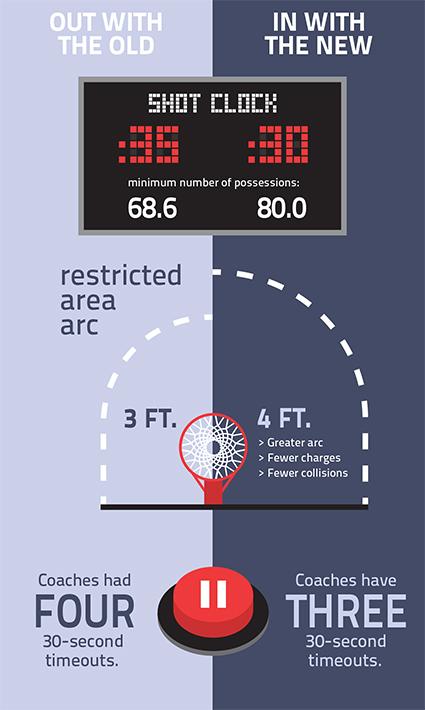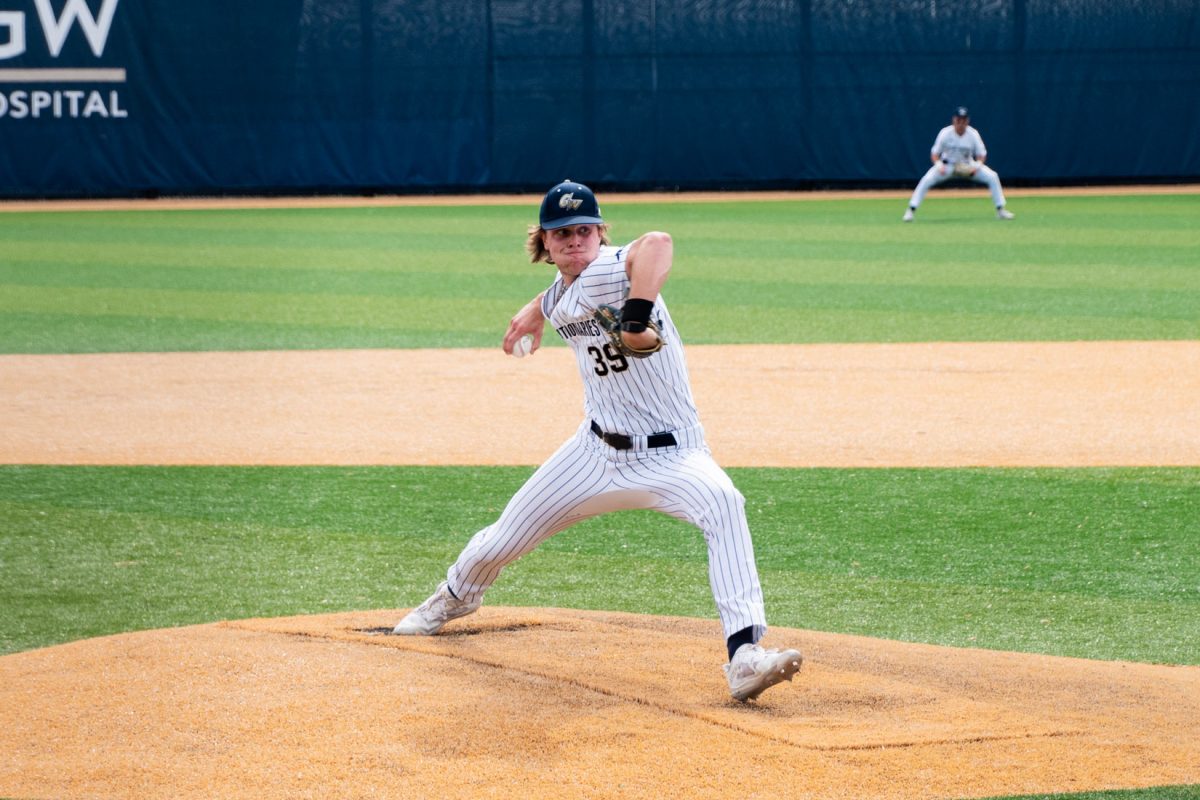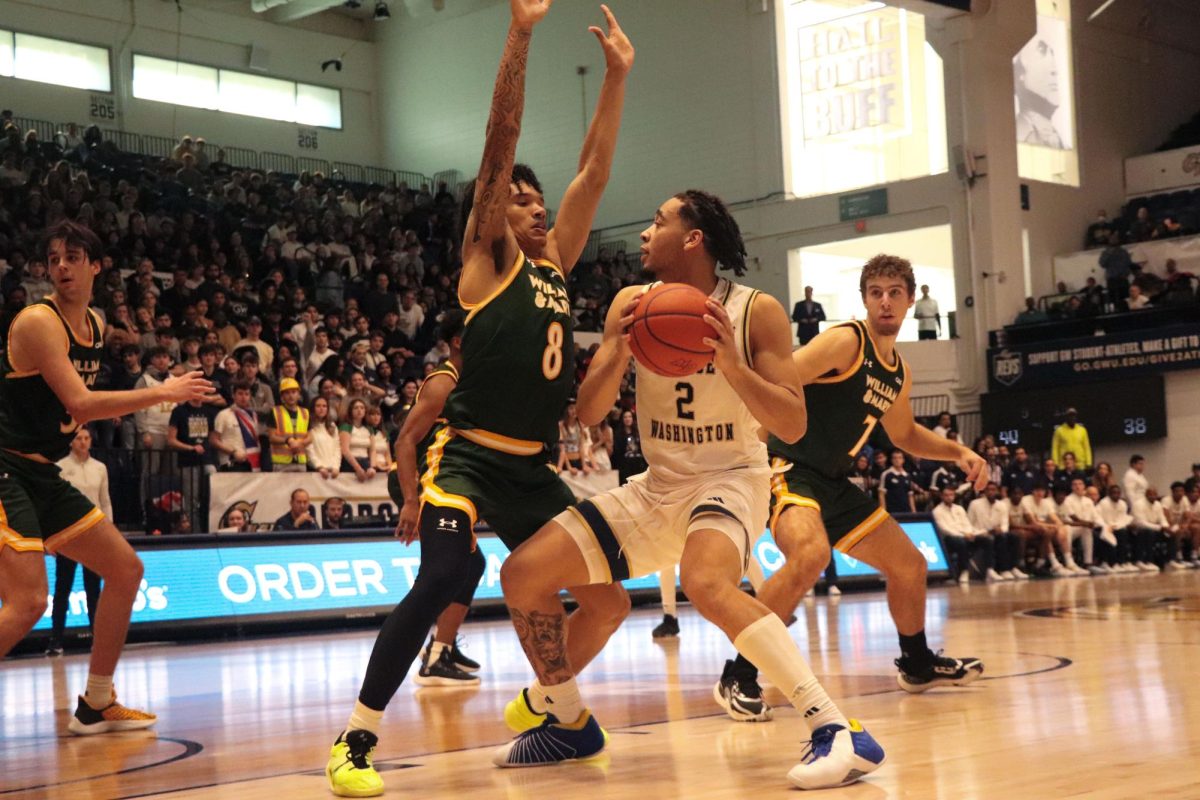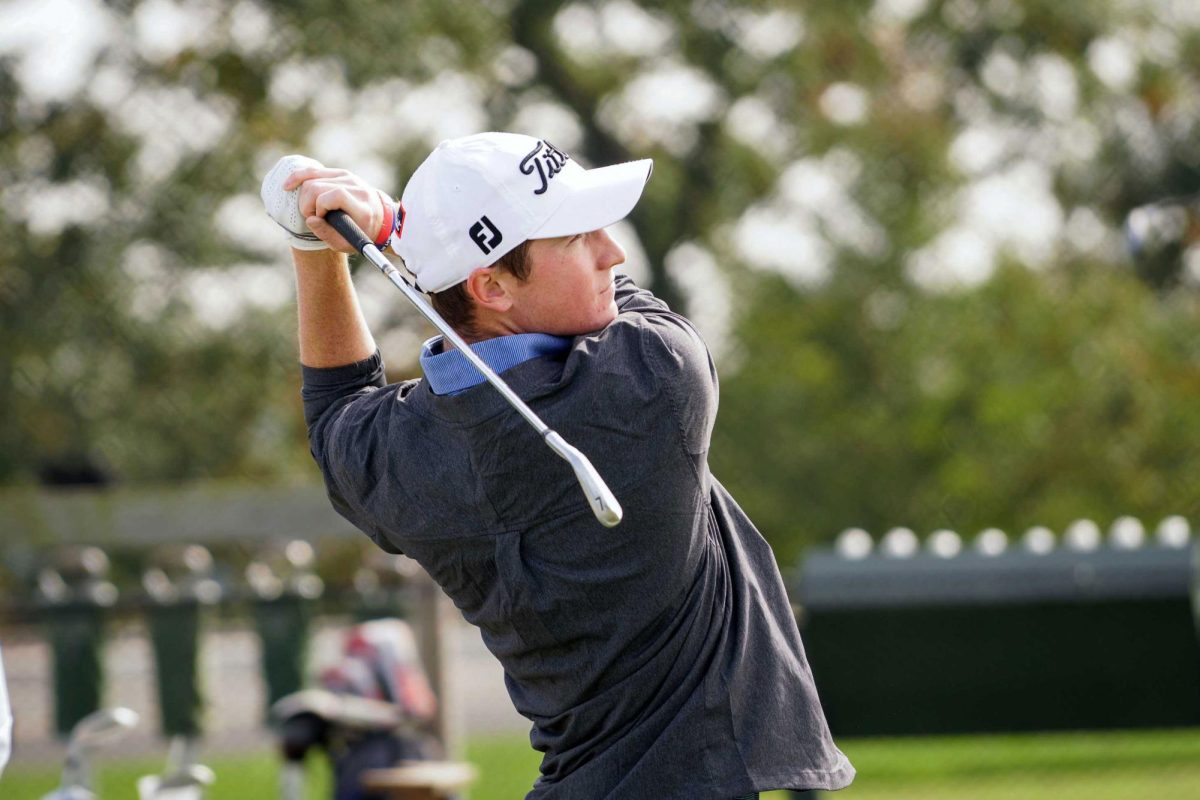
If it ain’t broke, don’t fix it.
That’s what men’s basketball head coach Mike Lonergan thinks about a set of new rules approved by the NCAA for this season.
Games will be played with a 30-second shot clock instead of a 35-second one, the charge circle has been expanded from three feet to four feet out from the basket and coaches can no longer call live-ball timeouts. The five-second closely guarded rule, that made it a violation for offensive players to hold or dribble the ball in place for five seconds while being guarded by a defender within six feet, has also been done away with while dribbling.
The changes are meant to increase scoring after teams averaged 67.6 points per game during the 2014‒2015 season, nearing an all-time low.
“They’re trying to increase scoring. I don’t know,” Lonergan said. “I worry about more bad shots being taken and it’s funny, everybody’s going to come up with some three-quarter court press.”
Lonergan likes the idea of players calling live-ball timeouts and approves of the change to allow just 10 total seconds for teams to advance the ball past half court instead of resetting the clock after a stoppage, but thinks that the better way to improve scoring overall would be for officials to enforce existing rules more strictly. In short, call more fouls.
Still, Lonergan hopes GW’s experience will help them adjust quickly. He said that the team’s seniors will have the green light to call timeouts.
“I’m hoping that being a veteran, experienced team the rules changes won’t hurt us as much as some of the younger teams,” Lonergan said.
GW may benefit from the rules changes defensively. The Colonials were a defensive-minded team last year, giving up an A-10 fourth-best 62 points per game and holding opponents to a league second-best 0.404 shooting percentage. They frequently utilized an aggressive 1-3-1 defense intended to keep opponents out of the paint and guard them into bad shots around the perimeter. Only having to do this for 30-second stretches helps, especially for the player with the tiring assignment of covering the top of the alignment.
The Colonials have already experienced the 30-second shot clock, which the NCAA experimented with during the postseason NIT last year. The Colonials played with the 30-second clock in place for two games, a win over Pitt and a loss to Temple. They averaged 68.5 points during those games.
Around the A-10, different coaches love or hate the new rules because of what they will mean to their individual teams this season, or because of what the rules changes will do for the game of college basketball.
Dayton’s Archie Miller likes the shot clock change so much he would actually take it one step further: implementing the NBA’s 24-second timer. Miller likes the up-tempo place for his Flyers squad’s skillset, and enjoyed playing with a 24-second clock at the FIBA World Championship over the summer as part of the coaching staff for USA Basketball’s U19 national team.
Duquesne’s Jim Ferry and Saint Joseph’s Phil Martelli both said at the A-10’s media day that college basketball would not be ready for a 24-second shot clock, though an increase in pace was necessary.
“Look, you have to be honest,” Martelli said. “This was not an easy game to watch. It was a game that people watched because of the rivalries and that excitement. But if scoring was going to continue to go down, what are you going to do?”
Martelli was more open to the changes than Lonergan, but he agreed with GW’s skipper about the need for officials to call more fouls and said that he takes it upon himself to be vocal with referees.
“Why wouldn’t you? Like when you get your tattoo and it says, ‘Coach, what’s the next thing you do?’ You bitch about the officiating. And here’s the key though. There’s not one coach ‒ and there’s a lot of bright guys in this league ‒ there’s not one coach that knows the rules,” Martelli said.
New VCU head coach Will Wade said that the first few weeks of the season will likely be a “whistle fest” as players and officials get used to the new rules.
The shot clock change is fine with Wade, but he doesn’t think it will change the game drastically alone. Only combined with new rules allowing “arm-bar” defense on post players, allowing cutters to move more freely and increasing freedom of movement for dribblers, will shorter possessions lead to more scoring, he said.
“If you had a 30-second clock and the same rules, people would just be physical and you’d be playing basketball in a shoe box,” Wade said.
Of course, all coaches have their personal idiosyncrasies. Martelli admitted to having a “twitch” about timeout calls, though he will let all his players call from the floor.
The same year, 1996, that GW served John Calipari’s No. 1 Massachusetts team its lone regular-season defeat, the Hawks took UMass to overtime twice but lost both times. The second game was impacted by an intentional foul call on the Hawks that sent an enraged Martelli storming at an official after the Minutemen won the game. But a mistake in the first game still haunts him as well.
“I had a kid standing underneath the basket,” Martelli said. “They had a kid going to the foul line and I was trying to freeze him, which never works, but you think it’s really cool to call. ‘Oh yeah, I’ll freeze that dude.’ Yeah, right. The kid stepped in the lane and the kid missed the free throw, and got another free throw. That game went into overtime.”
“The second game we got cheated, but the first game, the first game we had them beat. In the Field House, too, so I do have a little twitch about that,” he added. “That and inbounding the ball on a bounce pass. We lost that game up there on a bounce-pass inbound. And I can’t remember my wife’s name – I have to go over that before I go home tonight – but I remember those two plays. Forever.”








